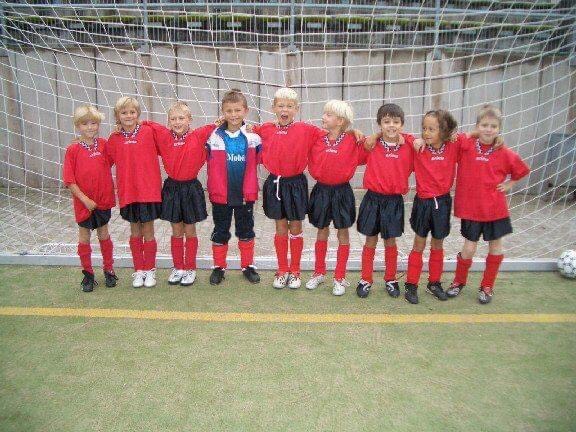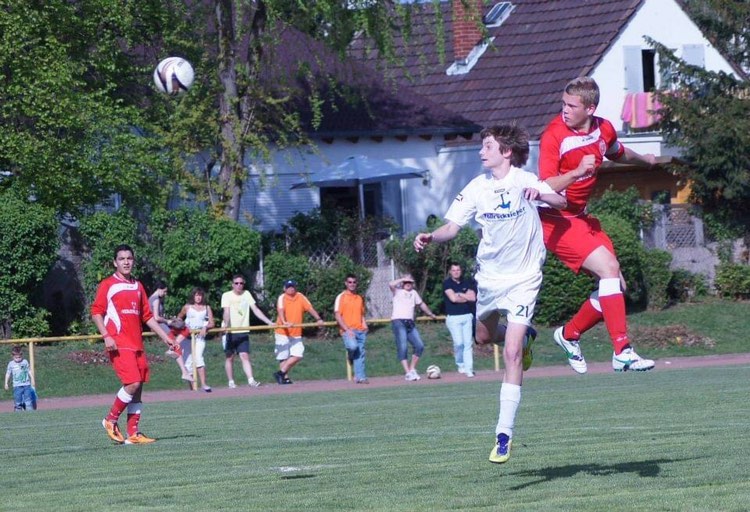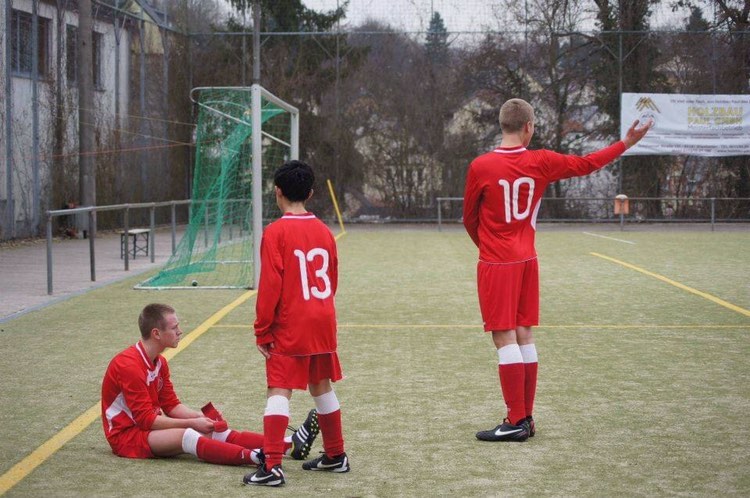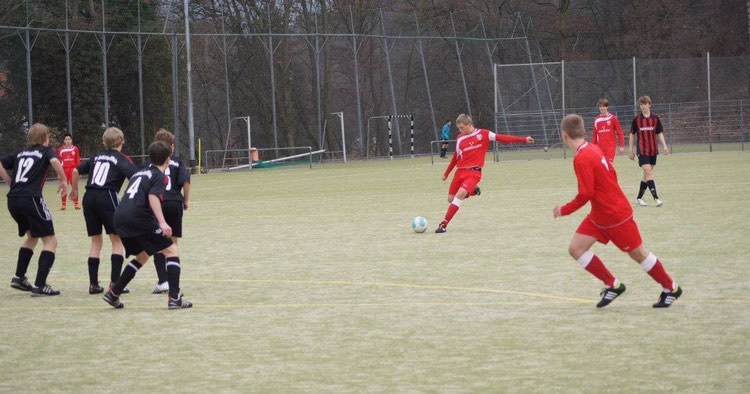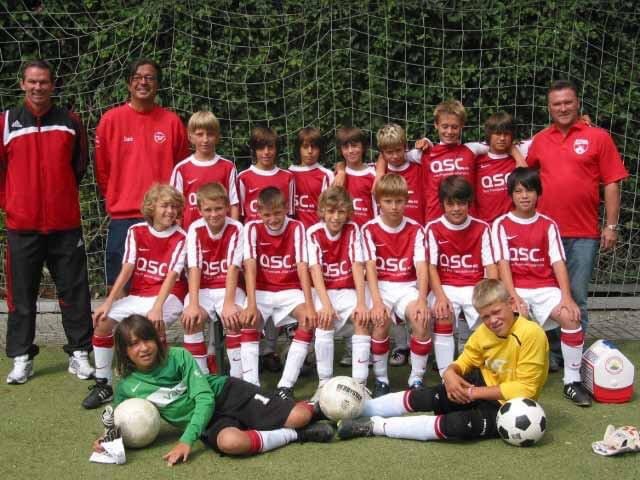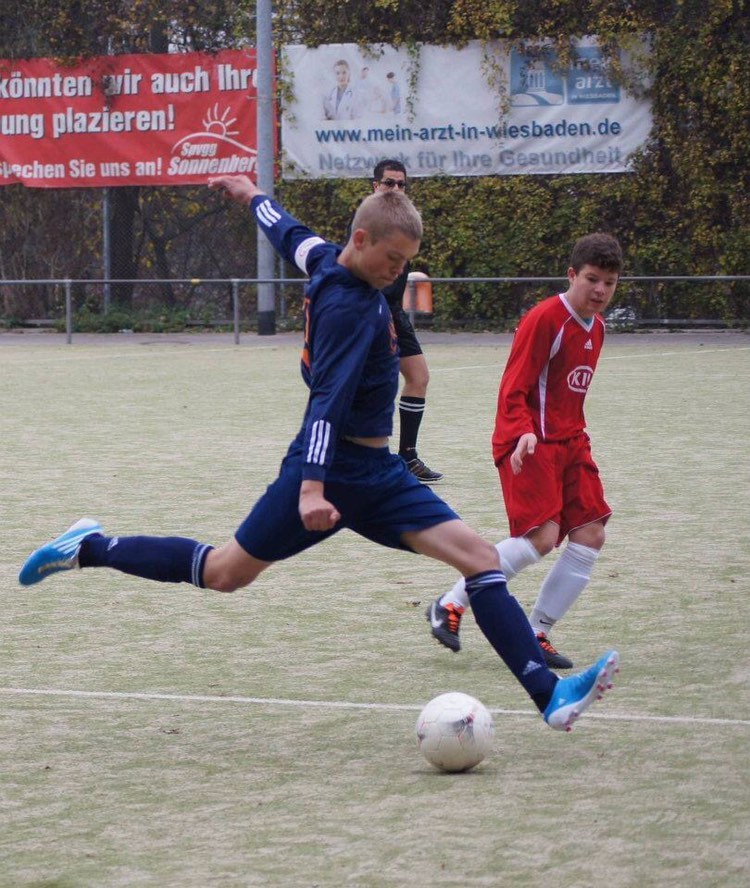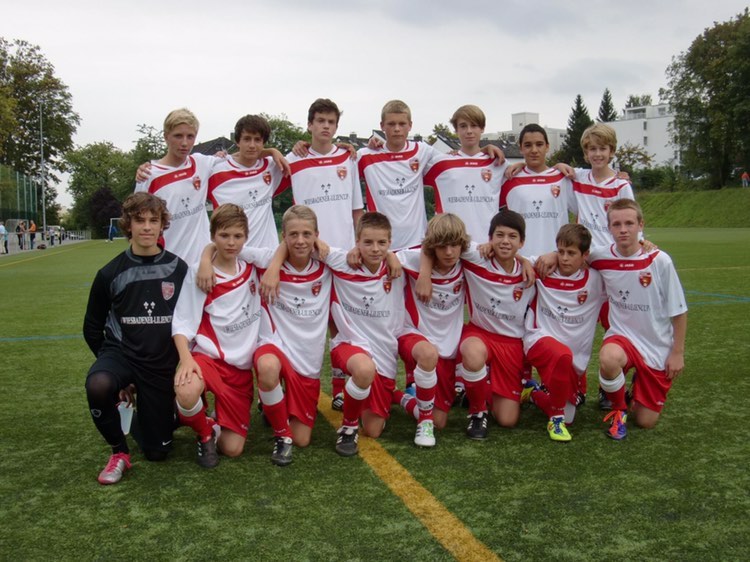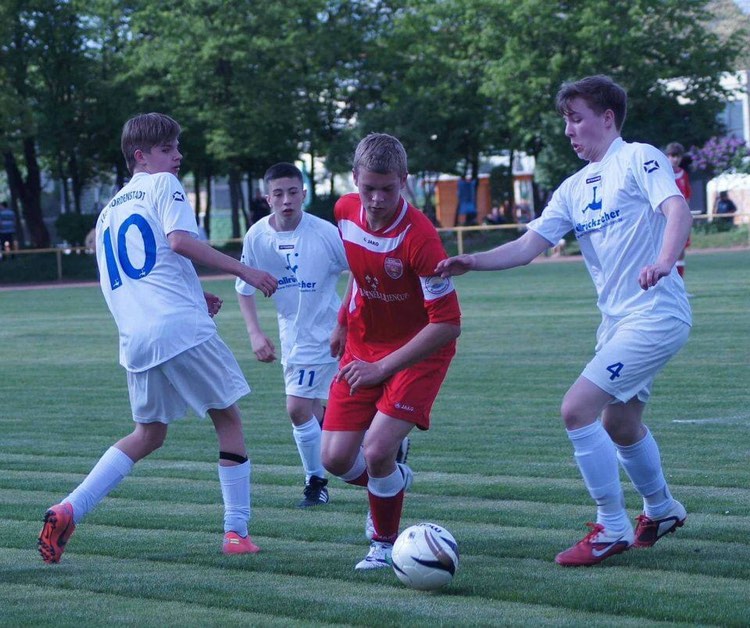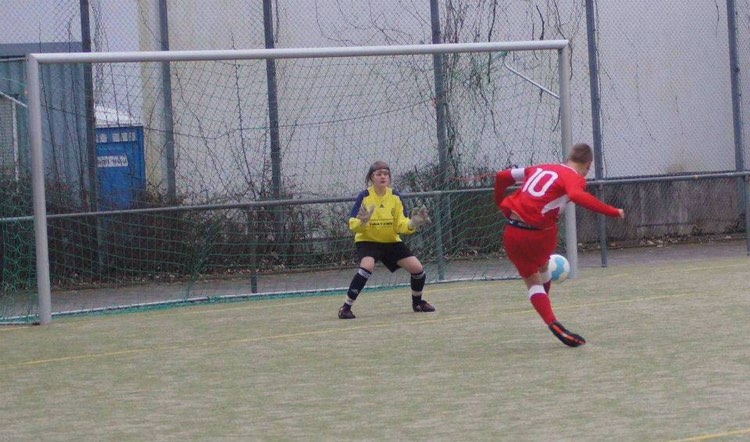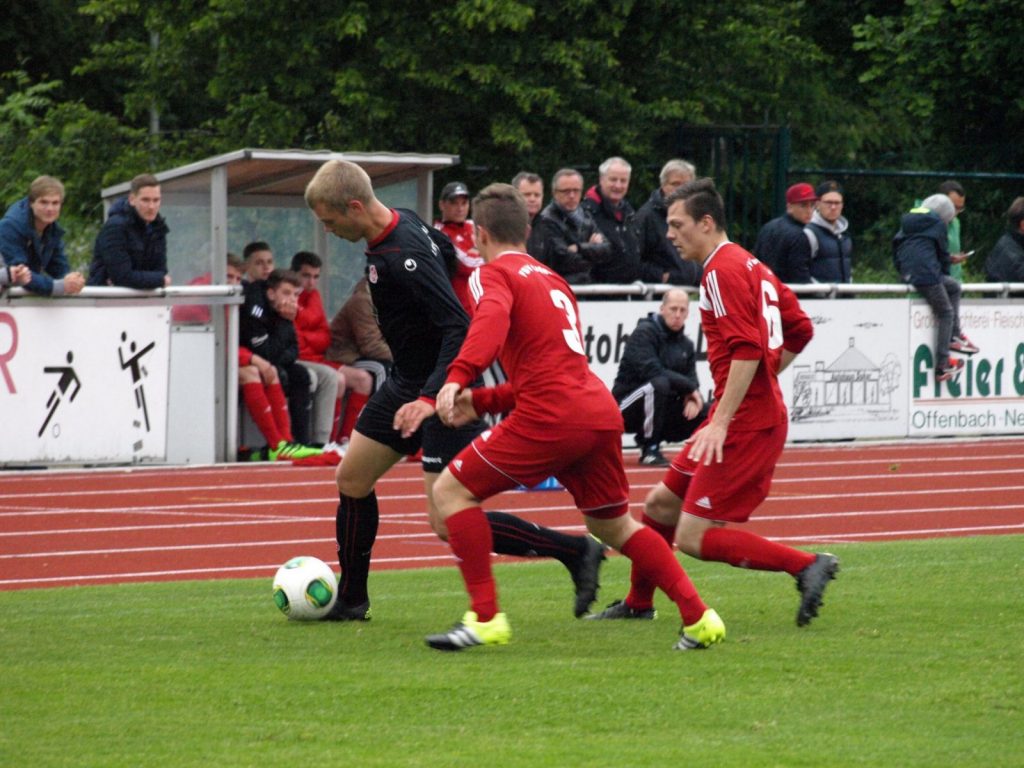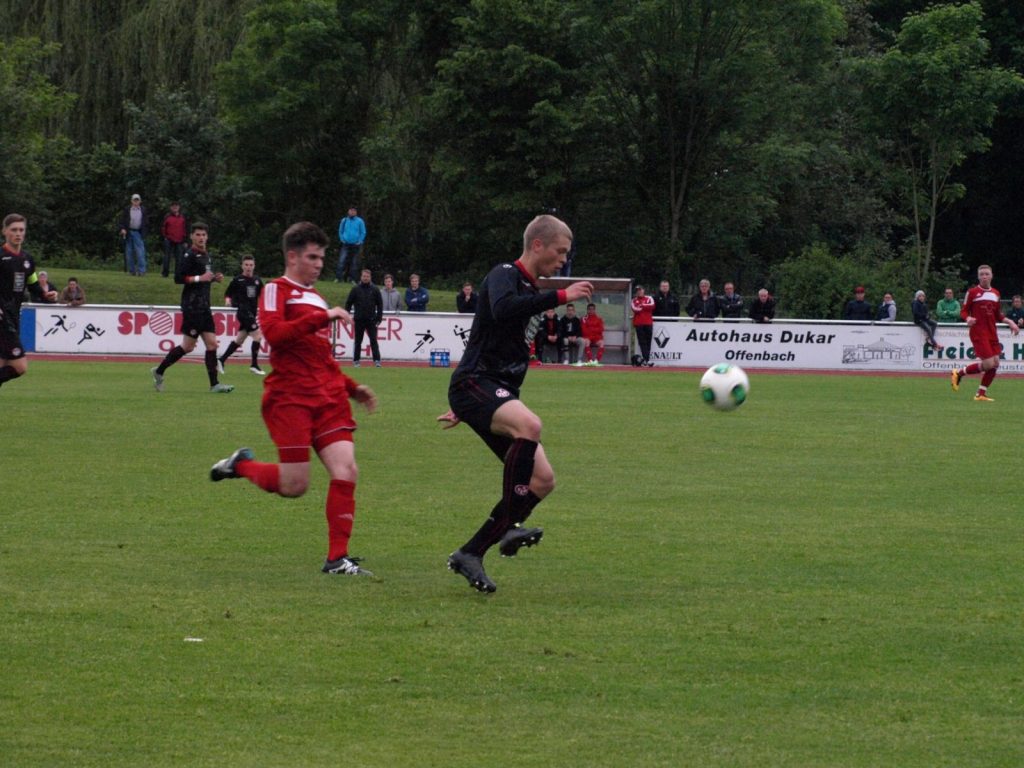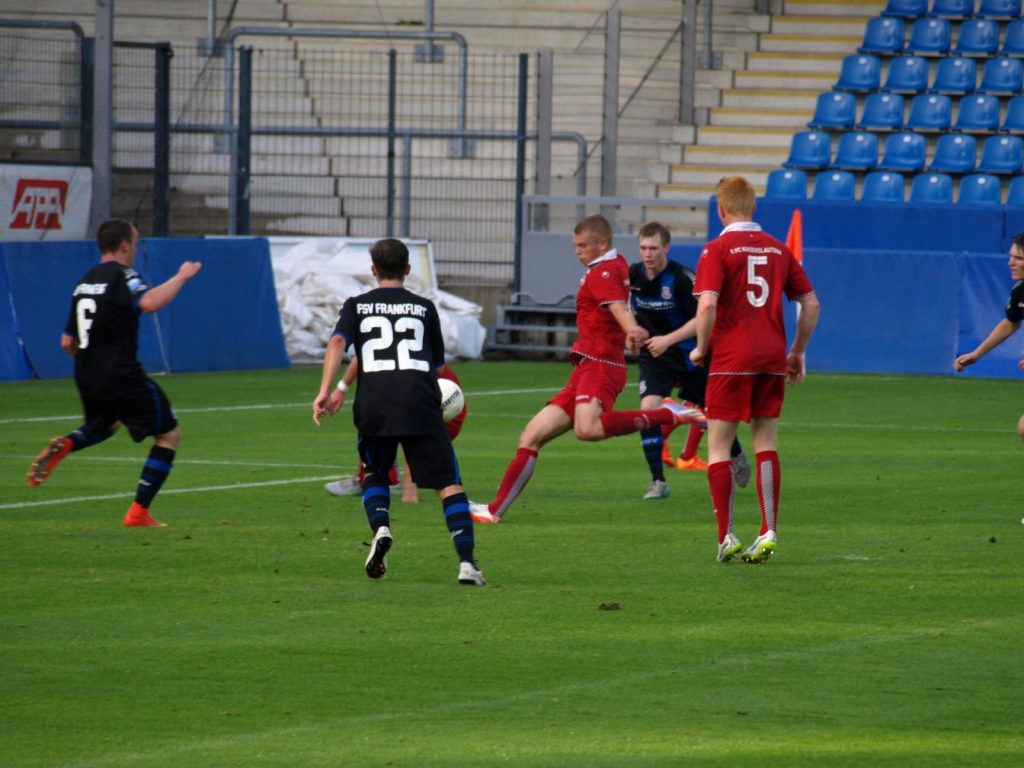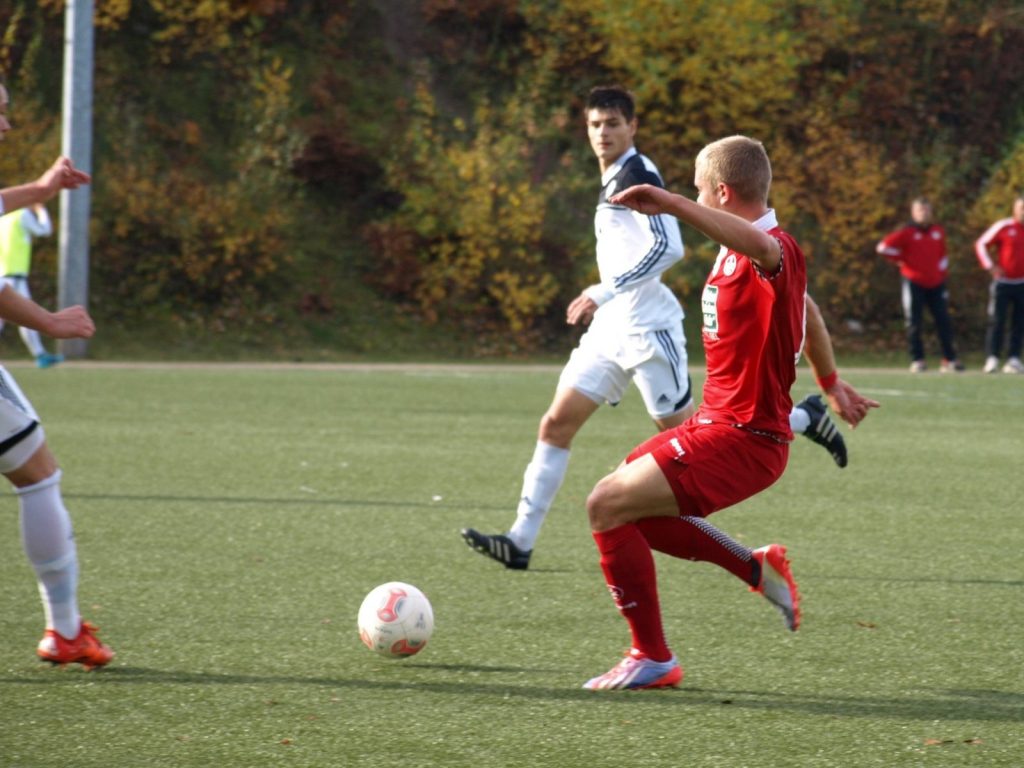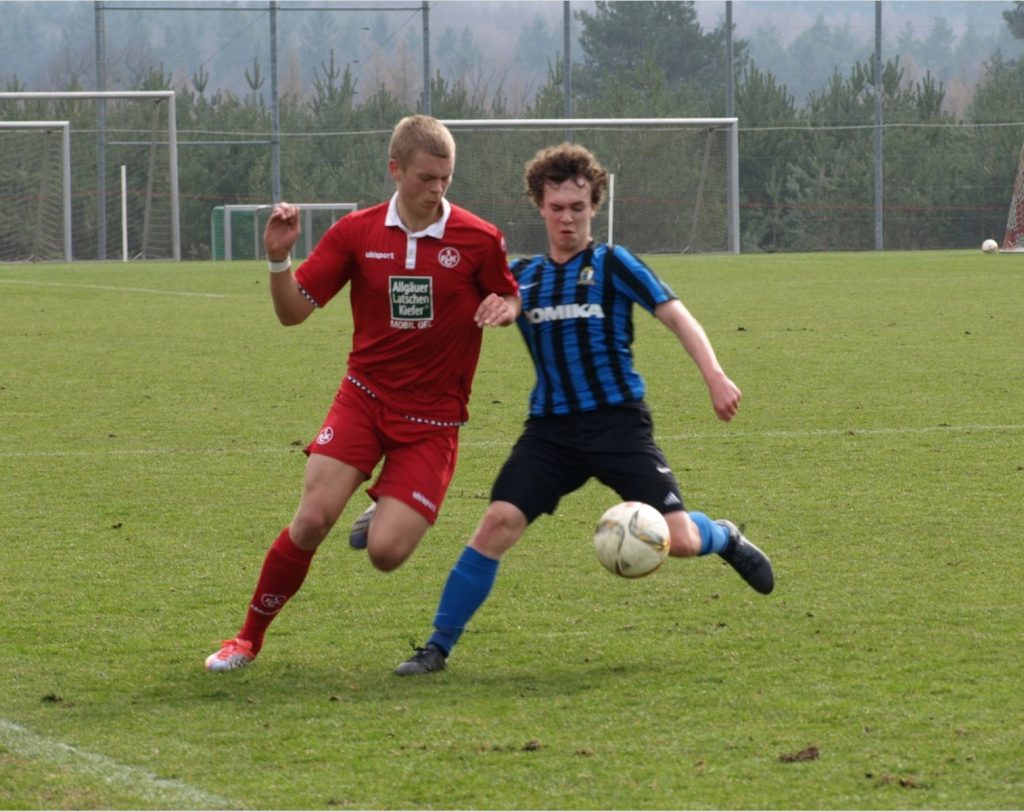He was at home on the Spitzkippel for 10 years until he went beyond Sonnenberg’s borders into the big, wide football world. Today, at the age of 22, he can look back on stations such as Schott Mainz and 1. FC Kaiserslautern. He is currently playing in America at Bradley University and next summer he might be playing as a striker in the MLS (Major League Soccer).
Start at the Spvgg
Gerit nice that you are with us today for a beer!
I can still remember it well when you laced your shoes at a young age at the Spitzkippel soccer field.
Wintermeyer: Yes, those were the first steps I made in soccer shoes, wherever it all started.
Very few are likely to know you. Tell me how long have you been in the club?
Wintermeyer: I have played for Sonnenberg on the Spitzkippel for 10 years before I wanted to change the scenery.
When you look back, do you remember former teammates, coaches or maybe even have contact with someone?
Wintermeyer: Amazingly, I can still very well address almost all of my teammates and remember the coaches and I still have very good contact with some of them.
With the Bambini’s (under 6 years) and the F-Jugend (6-8) you have already flashed your attacking talent. Even though you also wore the goalkeeper gloves for a few games, you always went towards the opposing goal. Have you ever seriously played a different position?
Wintermeyer: Not really. On the wings I was not quick enough, at the position “six” I was too lazy and only as a goalkeeper I felt comfortable and played for a long time. But then it changed and only as a striker I really felt comfortable and also accomplished.
Back then, you were rather small but powerful. Now look at you. 1.88m (6 feet 2) 88kg (194 lbs) that sounds like a yardstick for a striker. But there’s a lot more. You used to be in goal for a couple of matches. Have you played any other positions in your career so far?
Wintermeyer: There have been a few times where I had to help out as a central defender, although my positional game was not the best. These games helped me as a striker, however, because I was able to learn what is easy to defend and which paths make a defender sweat. There was also a short time I had to play a few games on the wings at FCK, but that was born out of necessity.
What was your best goal scoring so far and against whom?
Wintermeyer: Good question, probably when we had a preseason game with Kaiserslautern in Holland against AZ Alkmaar, where we won 8:2 and I scored 5 goals.
Which current Bundesliga player would you most likely compare yourself to?
Wintermeyer: Most likely Mario Gomez even if he now plays in the 2nd division, one of my role models. But of course I’m currently focusing on players like Lewandowski.
From the Spitzkippel you went into the big wide football world. Then where did you end up everywhere?
Wintermeyer: When I decided to look for a new challenge, I was very lucky to get to Schott Mainz, where I had some of my best years and enjoyed a great education. Then, I decided against moving away from home and playing for 1. FC Kaiserslautern.
At the BIG 1. FC Kaiserslautern
You played with the Red Devils. A large traditional club in German football. How was that? Could you still feel the glory of past years?
Wintermeyer: Definitely! When I played for FCK, the world was still in order and all teams played in high leagues. The preparation for the season was unique, with different trips, games and tournaments all over Europe. It was great to have teammates and a coach who challenged you every day and teased out the best every day. Of course, the youth performance center was a pleasure for every player.
How did the opponents behave when playing against you?
Wintermeyer: There were already some games in which we had to plug in a lot. Every opponent was always highly motivated and it was often hard to break the defenses, but there were also a few times when we played against teams that had future Bundesliga stars like FC Schalke 04 where we had no chance and a youth Leroy Sane (now FC Bayern München) scored 2 goals in a 5:0 loss.
Across the ocean to a college in the USA
Other countries other manners. Let’s talk a little bit about the differences to Europe.
Wintermeyer: One difference I noticed is the expectations of trainers and coaches. Much more respect, responsibility, and discipline are expected and preached than it is in Germany. And the equipment in our performance center is considerably better than I know from Germany. Some professional clubs had less available than we have it here.
But before we really get started! How did it come that you went to America?
Wintermeyer: I still had a 1-year contract with the FCK as a professional, but the new coaches of the 1st and 2nd team had no place for a young forward. So I looked around for alternatives and remembered that my old coach from my Schott time once offered me to get in touch with an agent who brings players to a college in the USA. After the first talks I was fascinated and decided to give it a try and was lucky that my current trainer said yes after some phone calls and after him watching some videos of my FCK games.
In theory, can anyone who thinks he is a reasonable kicker apply for a college scholarship?
Wintermeyer: Theoretically yes, the basic requirement is that you have a 3.0 Abitur (high school graduation) and pass all English tests before you can go over there.
Well, you ended up in Bradley. I saw that one of your teammates also comes from Germany. Was it helpful to have a native speaker on the team?
Wintermeyer: In my first year I had another German on the team who was my mentor and showed me everything. Without him it would not have been so easy, he gave me a piece of home and support in good times and in bad. He has been a big part in my success. In the meantime we have 3 Germans and one Austrian in the team, but two of them graduated this May and will leave us.
Gerit, you play with Bradley in NCAA Division I. I read that there are 206 teams, but you only played 19 season games! How does it work?
Wintermeyer: Exactly, and these teams are divided into 24 different conferences, like North, South, West, East or, in my case, by area, Missouri Valley Conference. Each league has between 6 and 15 teams and everyone plays against each other at least once, in the smaller leagues often with a second leg. A maximum of 20 regular season games can be made. Apart from the internal league games, the rest of the game plan can be filled with x-any college. However, all games will be played in the 4-month autumn semester, so mostly with 2 games a week, because the last month of the semester is reserved for the playoffs.
A huge difference is that you do not play a normal table mode. Actually, it can be compared to a European competition such as the Champions League or Euroleague. You play a group phase and then continue in tournament mode for the best. Can you explain this a bit more for us college laymen?
Wintermeyer: So that’s quite complicated and doesn’t make much sense from our usual view but I try it. There is a “League Modus” (Conference), “Cup Modus” (Tournament), and a “Champions League” (NCAA Tournament). A college wins the League (conference) by the the most winning league internal games, like in Germany. The games against teams from outside the league doesn’t matter. The Cup (tournament) is held after the League. The 1st teams play against the last in the league, the 2nd against the penultimate etc. The cup is played like in Germany in knock-out rounds until a winner is determined. In leagues with an odd number of teams, the last team will not take part in the cup.
The Champions League (NCAA Tournamnet) will be held after the other two competitions. 48 colleges take part, which consist of the teams they won their trophies, or they belong to the top 20 in the country, if you have not already qualified. In addition, 16 teams receive a free ticket for the first round. The league only plays a role in the top leagues where 1-3 teams can also qualify through the league. So that means win the cup, wipe your mouth and move on. The standings (1st to 206th place) are determined from the standings of the teams you are playing against and their victory and defeat difference.
From college football or basketball you know that the stadiums and arenas are filled with fans up to the roof. Soccer is not the third choice anymore as the favorite sport in the United States. How many spectators do you have at your games?
Wintermeyer: Yes, the top football universities have 50,000-70,000 spectators for every home game, many of them are in the south. Soccer has not yet done so well to the Americans. We had an average of over 1,000 spectators at home games last year, but we also have just under 6,000 students and relatively few people who come from outside compared to football. But at many of the state colleges, there is one in every state, sometimes over 70,000 students attend a game and usually over 35,000 students are at the games on average. Sometimes 10,000 crazy students are at the games and create a good atmosphere and have a good time. It’s a great feeling that inspires and motivates.
What does a normal week of study, training and matchday look like for you?
Wintermeyer: You get into a rhythm very quickly after a short time. You have to plan and structure your days very precisely, which is not particularly difficult as a German. As a rule, we have 2 units per training day, with 2 games per week and 16-hour lessons / lectures. The first session usually starts at 7 a.m. at the latest in the gym, so get up is at 6 a.m. for breakfast. Depending on when the first lecture starts, after gym means directly go to the university or learn and have lunch before going out to the training ground or the stadium from 2 to 5 p.m. And usually from 5:30 p.m. – 8:15 p.m. again to the university for 2-3 times a week. If we have games on weekdays the University in the morning is up to 4 hours before the game, then we are exempt. Every minute of the day must be used efficiently, sleeping, relaxing, studying, training, eating, etc.
So there is not so much time to visit student connection parties every weekend?
Wintermeyer: Grin. The Americans already know how to celebrate and, above all, celebrate victories and forget defeats. There is more time in the spring semester when the season is at rest.
Ok fun aside. I think the gametime is mega exciting. How is it for you that the clock runs down the 90 minutes mercilessly and the final whistle is at 00:00?
Wintermeyer: So far I’ve only had a good experience with it. But of course it’s hard when you counterattack and only have the goalkeeper in front of you, the buzzer wrestles and the game is over. The only thing that is uncomfortable is time play. Since there is no injury time, but only the watch that runs down relentlessly, this is of course annoying. But the referee can stop the clock in the event of injuries or changes that take too long, which is again very pleasant.
What are your hopes for the new season? Is there a deep playoff-run in there? Do you want to score more goals?
Wintermeyer: I personally have very high expectations of myself and am working on doing my best to get as far as possible with the team. My goal is to win the trophy, these are the best and most fiery games.
We cannot avoid the tiresome topic of corona today. How are you currently training?
Wintermeyer: Corona, of course, brought some limitations. The biggest limitation is the closure of the sports fields until recently. However, I had to catch up a lot of fitness due to my surgery, so it was not so bad.
If you now think back to your time in Germany and see what you are doing at college now, are these two different worlds or is the education similar?
Wintermeyer: Of course, each coach has his own game philosophy and each country has its own way of playing. There are huge differences in what you focus. While technology and tactics are preached very highly in Germany, in America it is very much shaped by physique, tactics, and standards. I never practiced standards like free kicks, corner kicks, throws, goal shots, and kick-offs before I came to America. We have a complete playbook with rehearsed moves for every standard with different names and characters. There has been sometimes a lot of confusion on the field, but we’ve also scored a few goals.
What do you like better in college soccer and the NCAA compared to the Youth Bundesliga? Or is it difficult to compare?
It’s hard to compare, but I think that both have their advantages and disadvantages, that’s in the eye of the beholder. With 2 games a week in college, a minor injury can quickly cost you a quarter of the season, that’s bad. I find the playoffs very exciting and much more interesting than the classic championship we have in Germany. On the other hand, I miss the high quality of football in Germany.
So now the all-important question comes! Which round and point do we see your name in the draft?
Wintermeyer: Provided the draft takes place and the season takes place and goes well, I hope to be drafted in the first round. An ambitious goal but a real one, for which I invest a lot, of course.
Thank you very much for being with us today. We wish you a great year and all the best for the future. Maybe we’ll meet again soon for a beer at a home game at the Spitzkippel in Sonnenberg.
Wintermeyer: Thank you for the interest, I enjoyed it. Hopefully we all soon can be delighted by the sport we all love so much …
